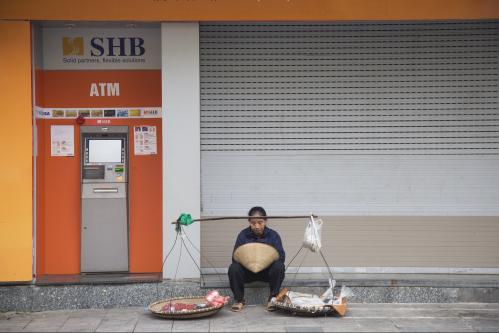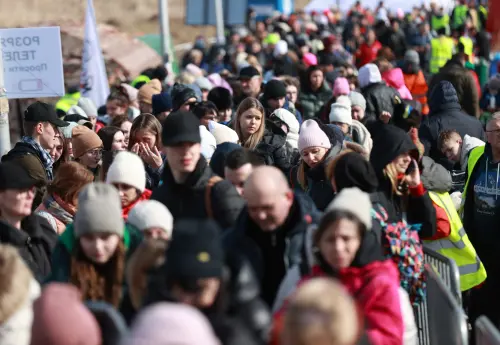Formal businesses in developing countries often complain about unfair competition from their peers in the informal sector. Their complaints are often well-founded: Growing formal companies must go through the hurdles of paying taxes and fees, waiting in line for permits, and even facing greater scrutiny from government agencies.
Informal businesses, on the other hand, use minimal, if any, time or resources to comply with those regulations. As a result, they get to sell their goods and services at a lower cost than their formal competitors.
The parallel systems persist, but do formal businesses really suffer?
Impacts of internally displaced persons on formal business
In a new working paper, we explored this hypothesis by examining the large numbers of Internally Displaced Persons (IDPs) during Colombia’s armed conflict in the late 1990s and the 2000s. IDPs increased the size of the informal sector dramatically and were more likely to take informal jobs because they often lacked legal IDs, were more likely to be unskilled, had little-to-no experience in non-agricultural jobs, and many of them were affected by traumatic events that prevented them from taking high-tier formal jobs.
That leaves opportunities in the informal economy, offering cut-rate services with little regulation or oversight.
We find that the IDP inflows had large and negative impacts on formal firms in Colombia. When inflows of IDPs increased by 10 percent, the production of formal firms dropped by 3 percent. In addition, the probability of firm exit increased by 2 percentage points. A back-of-the-envelope calculation suggests that the average formal firm experienced a 6.6 percent annual decrease in its production between 1995 and 2010 because of IDP inflows.
We also document that the negative effects of IDP inflows are concentrated on formal firms operating in sectors where informality is more predominant, and as such may face stronger informal competition. These negative impacts could be explained by different mechanisms:
- Formal firms face higher costs relative to informal firms as they pay taxes, fees, and higher wages for their employees. Informal firms can thus usually offer lower prices, thereby competing unfairly with formal businesses.
- Unfair competition from informal firms can also slow down the process in which inefficient firms can be replaced by more efficient competitors and negatively affect the incentives of formal firms to innovate and adopt new technologies, as these innovations can be easily stolen.
- Since informal firms can use public goods, but do not pay for them, they lower their quality and crowd out their use by formal firms.
Integrating IDPs and refugees into labor markets
Fast forward to today, what do these findings mean for current policies?
Take the case, for example, of the growing number of Venezuelan refugees in Latin America. According to the U.N. Refugee Agency (UNHCR), there are over 4 million refugees and migrants from Venezuela worldwide. While they were initially received with open arms, attitudes are changing as the latest waves are more likely to be unskilled and to join the informal sector. Denying them the right to work in the formal economy could push them to take informal jobs and thereby add serious pressures on Latin American formal firms, our results suggest.
More generally, our findings highlight the importance of national policies and international cooperation efforts in facilitating the integration of IDPs and refugees into formal labor markets.
The size of the informal sector is already very large across Latin America. By denying work permits, governments risk making it even larger.








Commentary
Is informality bad for business?
October 11, 2019